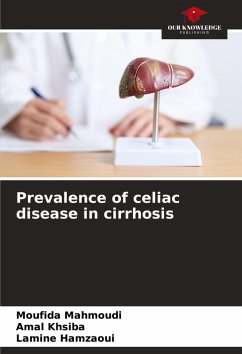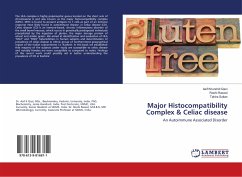
Adult celiac disease and associated autoimmune diseases
Versandkostenfrei!
Versandfertig in 6-10 Tagen
27,99 €
inkl. MwSt.

PAYBACK Punkte
14 °P sammeln!
Celiac disease (CD) is an autoimmune inflammatory enteropathy, caused by one of the protein fractions of gluten (food antigen), gliadin (a protein contained in wheat, rye and barley) and which occurs in genetically predisposed subjects [1,2,3]. Its pathogenesis results from the interaction between genetic, immunological and environmental factors which, through the intervention of the human leukocyte antigen (HLA) class II genes (encoding the HLA-DQ2 molecule, and those encoding the HLA-DQ8 molecule) induce an immune response in the intestinal mucosa leading to villous atrophy resulting in mala...
Celiac disease (CD) is an autoimmune inflammatory enteropathy, caused by one of the protein fractions of gluten (food antigen), gliadin (a protein contained in wheat, rye and barley) and which occurs in genetically predisposed subjects [1,2,3]. Its pathogenesis results from the interaction between genetic, immunological and environmental factors which, through the intervention of the human leukocyte antigen (HLA) class II genes (encoding the HLA-DQ2 molecule, and those encoding the HLA-DQ8 molecule) induce an immune response in the intestinal mucosa leading to villous atrophy resulting in malabsorption, and the presence of specific antibodies in the serum of patients, which has changed the epidemiological view of celiac disease. The association with other autoimmune diseases (AID) is frequent, which imposes their systematic research. The aim of our work was to evaluate the prevalence of autoimmune diseases during celiac disease and to analyze their epidemiological, clinical, and immunological profile.














